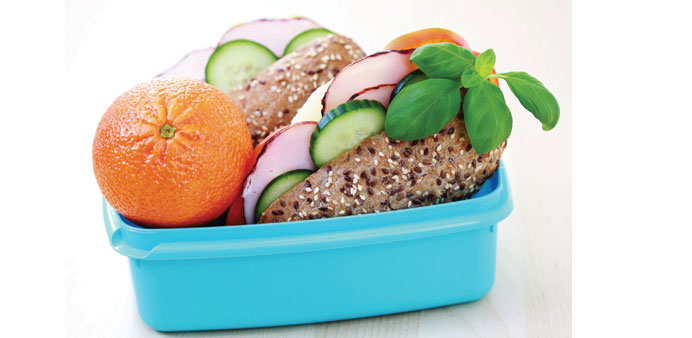As the new academic year begins today, Weill Cornell Medical College in Qatar (WCMC-Q) has advised families how their children can eat healthily to make the most of their day.
The college is currently running its health campaign, Sahtak Awalan – Your Health First, which is designed to change unhealthy habits into healthy ones so as to create a strong, productive and healthy population in line with Qatar National Vision 2030.
With diabetes and obesity at high levels in Qatar, WCMC-Q believes that one of the best ways to combat the diseases is to encourage children and teenagers to develop healthy eating habits while they are young.
With this in mind, Sahtak Awalan – Your Health First has provided advice to parents who want to ensure their children get a great, energy-boosting start to the day and also eat a nutritious, healthy lunch.
Dr Mohamud Verjee, associate professor of Family Medicine at WCMC-Q, said breakfast is an important meal that should not be skipped as it helps kick-start metabolism. Indeed, breakfast can help the body burn up to 25% more calories throughout the day. Ideally, it should include some fruit, some dairy product like labneh and a complex carbohydrate – such as unsweetened muesli - that will provide a slow release of energy.
For lunch, Dr Verjee said, the important thing was to achieve a balance of nutrients. This means that a lunchbox should contain a carbohydrate source like wholemeal bread, brown rice or quinoa, a protein provider like tuna or beans, a dairy item like milk or cheese plus some vegetables and fruit.
Foods like chocolate bars, packets of chips and even processed meats should only be eaten as an occasional treat because of the large amount of sugar, salt and saturated fat that they generally contain. Similarly, rather than taking a can of fizzy drink, youngsters should drink water, milk or unsweetened fruit juice.
Dr Verjee said, “Striking a balance is the most important aspect of lunch. You have to give your children the energy they need to think and play but you also need to provide them with the vitamins and minerals that are essential for growth and their general health.
“It can be difficult to encourage children to eat fruit and vegetables, particularly when they are at school and families are not around to supervise them, but parents can make these foods more attractive; chopping carrots and cucumber into sticks, for example, makes them easy to eat, and fruits like grapes and strawberries are always popular.”
Parents should also persevere with healthy lunches and not give in to pressure for chips and chocolate. They should also set an example at home, providing healthy nutritious meals for themselves as well as their children, and keeping trips to fast food restaurants for special occasions.

